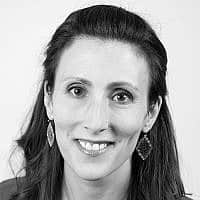We Are Moses
March 25, 2021 in From the Clergy, General, Guest Post, Rabbi Greg Harris
 This is the fourth week of the month. For Reflections Off the Bimah, the fourth week features thought leaders from throughout the Jewish world and beyond. These special posts give you the opportunity to consider important opinions you may not readily encounter. This week, I bring Yael Leibowitz who has been on the faculty at Yeshiva University Stern College and the Drisha Institute prior to making aliyah in 2014. I am taken by her teaching that Moses learned to be compassionate and a leader by his own experiences of being on the margins. We must also be sensitive to others through our own awareness of the pain and loneliness we have each felt in our lives.
This is the fourth week of the month. For Reflections Off the Bimah, the fourth week features thought leaders from throughout the Jewish world and beyond. These special posts give you the opportunity to consider important opinions you may not readily encounter. This week, I bring Yael Leibowitz who has been on the faculty at Yeshiva University Stern College and the Drisha Institute prior to making aliyah in 2014. I am taken by her teaching that Moses learned to be compassionate and a leader by his own experiences of being on the margins. We must also be sensitive to others through our own awareness of the pain and loneliness we have each felt in our lives.
by Yael Leibowitz
Click here for the original post in Times of Israel
Miriam stands at the head of the line. Her jaw is set, and her eyes are fierce. She raises the tambourine high in the air, and they all follow. The beat is hypnotic. Bodies sway. Lungs draw deep, grateful breaths. Hearts pulsate. Everyone feels the rush. The relief.
Freedom.
Moses smiles at his sister. His savior. He knows that without her, he wouldn’t be here. And he knows that she didn’t act alone. He knows that he is where he is, because of the insubordination of his midwives, the resourcefulness of his birth mother, and the defiance of his adoptive mother.
Moses was raised in the palace, but he wasn’t Egyptian. And he went out to his brothers, to meet them in their suffering. But he wasn’t one of them. They told him so. Even though they didn’t have to. He already knew. He knew he didn’t belong. Not in the palace, nor at the construction sites. So, he fled to Midian. Where he didn’t belong, either. He married the daughter of a local priest, and tried to fit in. But he didn’t. Because he couldn’t.
“Zipporah…bore him a son whom he named Gershom, for he said, ‘I have been a stranger in a foreign land.” (Exodus 2:22)
So, Moses wandered with his sheep into the wilderness. He strolled with them in the mountains. Ambled with them in the open air. Far from architecture, and language, and the trappings of culture. Far from labels, and ethnic alliances, and clans and tribes. And he thought, as he walked, about vulnerability, and feeling unprotected. About being alone, in a world, where everyone has someone. And about not belonging, in a world where everyone else is a part.
He knew that how he felt was the reason he did the things he did. Why he defended the unarmed Hebrew being crushed by his slave master, and why he intervened when the two Hebrews were fighting. It’s why, despite being a newcomer in town, he stood up to the locals tormenting Jethro’s daughters, and why he made sure the women had water for their flock.
And he knew, as he walked with his animals through grass and over rocks, where it all came from. Moses knew that the women that orchestrated his birth were only able to do so because they chose to convert anguish into resolve. Because they had experienced terror and helplessness. And those experiences became the engine that fueled their crusade to ensure that they would be the last ones to ever feel those feelings. Moses knew that it wasn’t a coincidence that he spent his life standing up to injustice and protecting the weak. And he knew that his past would never allow him to stop.
You shall not oppress a stranger, for you know the feelings of the stranger, having yourselves been strangers in the land of Egypt. (Exodus 23:9)
We are Moses.
We have been strangers everywhere that we have been. We have tried, and failed, and fled and hid. We have found refuge and fled again. We have stood on the outside, and tried to get in. We have been on the outs and resisted the pull. We have wandered among the thorns, and we have had two millennia to reflect on being strangers in the lands of our birth.
And then, miraculously, the sea of exile split for a second time. And now, we are settled. And our confidence is buoyed by military victories and historical claims. Finally, we are powerful. We belong. Finally, we can protect ourselves, and make the rules. Finally, for the first time in thousands of years, we decide.
And so, as Moses learned from his saviors, we learn from him.
To invite our collective trauma to shape who we are. To evoke memories of past pain to spur endeavors that are fair, and ethical, and kind and brave. To remember what it feels like to be outnumbered, and discriminated against. And in turn, to protect those who cannot protect themselves. The shadow of Moses’ realities hovered over every decision he made, just as the shadow of our past hovers over our national consciousness. We need to let it hover. And haunt. And conjure memories of Miriam and Moses. And we need to listen carefully, when it whispers in our ears, and asks us whether what we are building today is safe for the people we once were.